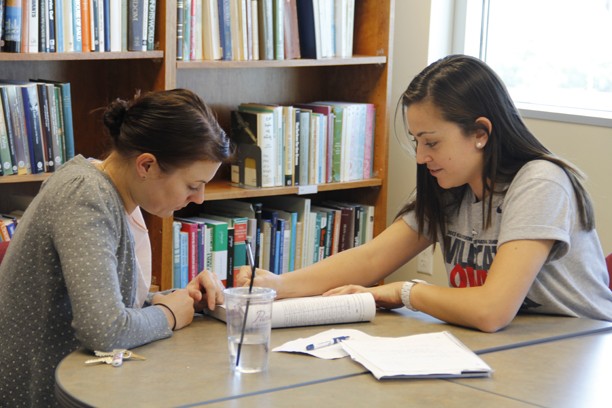This article has been clarified and updated with additional information.
With the U.S. military still maintaining its role in the Middle East, the UA is offering ROTC students training in Arabic as preparation for deployment.
Through Project Global Officers, or Project GO, the School of Middle Eastern and North African Studies receives financial benefits for offering ROTC students training in Arabic.
Additional benefits in Arabic are provided to students through tutors who are both native and non-native Arabic speaking partners.
Students who want to take part in the project must be enrolled in an Arabic course, said Charles Mink, a Near Eastern studies graduate student and the program’s coordinator. While the classes emphasize reading and writing, the sessions offered through the program focus thoroughly on acquiring speaking skills, he added.
“When they go overseas they may be dealing with populations that can be illiterate,” Mink said. “Their skills, as reading and writing, are not going to be as useful as speaking.”
A proposal for Project GO was presented to the U.S. Department of Defense, which funds the program through the Institute of International Education and the Defense Language and National Security Education Office. The program is coordinated through MENAS and the Center for Middle Eastern Studies, Mink added.
The three-year grant covers each tutor’s salary, the student partner financial compensation and 16 scholarships that allow students to receive additional training in Arabic courses.
While the program focuses on minimizing the grammar part and emphasizing the verbal, the sessions also teach students about cultural aspects of the Arab world.
One way to teach students about the culture is through comparison, Mink said. Students are asked to think of their own culture and compare it to the Arab culture, which keeps them from being self-centered, he said.
“By virtue of comparison, they learn about different culture,” Mink said.
Lauren Morford, a Naval ROTC cadet and mathematics freshman, said that the key role of the program is to facilitate students’ passion for making a difference in the world in taking the time to learn the language before deployment.
This shows a trust between the two countries that can help “build some burned bridges” and show respect between the two parties, Morford added.
“It shows so much caring that we went out of our way to learn their language and not just mindlessly invade their land,” she said.
Students spend one-on-one time with their tutors for an hour once a week, and spend an additional hour with their speaking partners. Currently, the program has 13 students enrolled along with two tutors and 13 speaking partners.
David Forsythe, an Air Force ROTC cadet and Near Eastern studies junior, said although learning a new language has been difficult, it has been an interesting experience for him.
Through the sessions, Forsythe said, he has gained a new perspective about Middle Eastern culture.
“The sessions are very practical and give me the authentic practice to speak and interact with a speaker,” he said.









